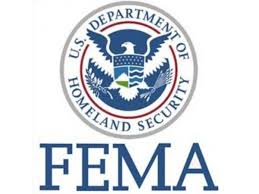 Houston’s Anderson family has benefitted from temporary lodging and repair assistance
Houston’s Anderson family has benefitted from temporary lodging and repair assistance
AUSTIN, Texas — Robert Anderson’s family had nowhere to go when they were forced from their Houston home by Hurricane Harvey’s floodwaters. Two of his children have cystic fibrosis, which made staying in a house potentially infested by mold or other microorganisms dangerous to their health.
“We don’t have many relatives down here, and the ones I do have are not the type that are like, ‘Come stay with me,’” Anderson said Tuesday. “FEMA helped so much. They gave us somewhere to stay, and we’ve been there ever since the storm.”
For the past 10 months, Anderson and his children have stayed in a motel paid for by FEMA’s Transitional Sheltering Assistance (TSA) program. On Tuesday, they moved out of the motel and into an apartment financed through FEMA’s Direct Housing program.
“FEMA stepped in and gave a place for me and my kids that helped me raise them and keep them going,” he said. “The things you all have done and are doing — I just thank God. I don’t know what I would have done without you guys.”
Anderson didn’t have insurance on his home because it wasn’t officially his property when Harvey hit. His mother had recently died, he said, and his inheritance of the property was still being processed. When the floodwaters arrived, they caused $80,000 worth of damage.
Through the combination of a FEMA housing award and a U.S. Small Business Administration disaster loan, the Andersons’ house is being repaired, and they expect to return home within a couple of months.
“So many people have suffered because of Harvey, and now hurricane season is here again,” Anderson said. “But we’re making it.”
The Andersons are one of 54,639 Texas households that have sheltered at hotels or motels through the TSA program since Hurricane Harvey, including 24,690 that received more than two months of rental assistance. The program will expire Saturday after 308 days of support to Harvey survivors.
Households remaining in the TSA program are working closely with disaster case managers (DCMs) to finalize their long-term housing plans by the end of this month. DCMs, who provide long-term, one-on-one support, can be reached by calling 211. Survivors with a continuing need for rental assistance also can contact FEMA at 800-621-FEMA (3362).
For additional information on Hurricane Harvey and Texas recovery, visit the Hurricane Harvey disaster web page at www.fema.gov/disaster/4332, Facebook at www.facebook.com/FEMAharvey, the FEMA Region 6 Twitter account at www.twitter.com/FEMARegion6 or the Texas Division of Emergency Management website at https://www.dps.texas.gov/dem.

